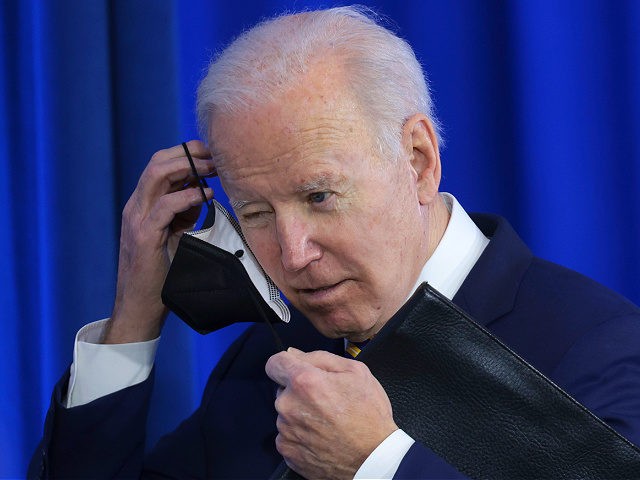President Joe Biden’s administration on Monday announced that he is defying the wishes of the Republican-led House and extending the national emergencies related to the Chinese coronavirus on May 11, but the administration directly admitted in its defense that ending Title 42 would result in “a substantial additional inflow of migrants at the Southwest border.”
Both the coronavirus national emergency and public health emergency, declared in 2020, are set to expire on March 1 and April 11. However, the Biden administration made it clear on Monday it will not allow the emergencies to expire at those times and will instead extend them into May, despite Republicans in the House bringing forth resolutions to end the emergencies.
H.R. 382, also known as the Pandemic is Over Act, would specifically end the public health emergency declared three years ago. The bill, introduced on January 17, 2023, would effectively end the emergency on the date of the enactment. Rep. Brett Guthrie, (R-KY) is leading that effort alongside 19 cosponsors.

Los Angeles, CA – July 14: Shoppers in mask and without masks in a very congested market Santee Alley on Thursday, July 14, 2022 in Los Angeles, CA. (Irfan Khan / Los Angeles Times)
The bill states:
The public health emergency declared by the Secretary pursuant to section 319 of the Public Health Service Act (42 U.S.C. 247d) on January 31, 2020, entitled “Determination that a Public Health Emergency Exists Nationwide as the Result of the 2019 Novel Coronavirus” (and any renewal thereof) shall terminate on the date of the enactment of this Act.
Similarly, H.J.Res.7 , introduced January 9, 2023, would end the coronavirus national emergency, which former President Donald Trump originally declared on March 13, 2020. Rep. Paul Gosar (R-AZ) is heading up that effort, which has 51 cosponsors.
That bill reads:
Resolved by the Senate and House of Representatives of the United States of America in Congress assembled, That, pursuant to section 202 of the National Emergencies Act (50 U.S.C. 1622), the national emergency declared by the finding of the President on March 13, 2020, in Proclamation 9994 (85 Fed. Reg. 15337) is hereby terminated.
Despite that, the Biden administration claims that ending the emergency declarations in accordance with these proposals from House Republicans “would have two highly significant impacts on our nation’s health system and government operations,” asserting it would prompt “wide-ranging chaos and uncertainty throughout the health care system.”
The Office of Management and Budget’s letter makes broad arguments, claiming that ending the public health emergency immediately would put Americans at risk of “abruptly” losing healthcare as Medicaid has operated under “special rules to provide extra funding to states to ensure that patients did not lose access to care unpredictably and that state budgets don’t face a radical cliff.”
Further, the administration contends that ending the public health emergency would end Title 42, which the administration actually supports. However, it asserted that the border’s Title 42 remains in place due to Supreme Court orders, yet it admitted in its defense of extending these emergencies that lifting the policy would result in what it described as “a substantial additional inflow of migrants at the Southwest border” — an argument made by conservatives in defense of keeping Title 42 in place, despite Biden’s attempts to end it.
The administration argued:
The Administration supports an orderly, predictable wind-down of Title 42, with sufficient time to put alternative policies in place. But if H.R. 382 becomes law and the Title 42 restrictions end precipitously, Congress will effectively be requiring the Administration to allow thousands of migrants per day into the country immediately without the necessary policies in place.
A December Harvard CAPS/Harris Poll found that most Republicans, Democrats, and independents want the Title 42 regulation — allowing the U.S. to turn away more illegal migrants with ease at the border — to remain in place.


COMMENTS
Please let us know if you're having issues with commenting.